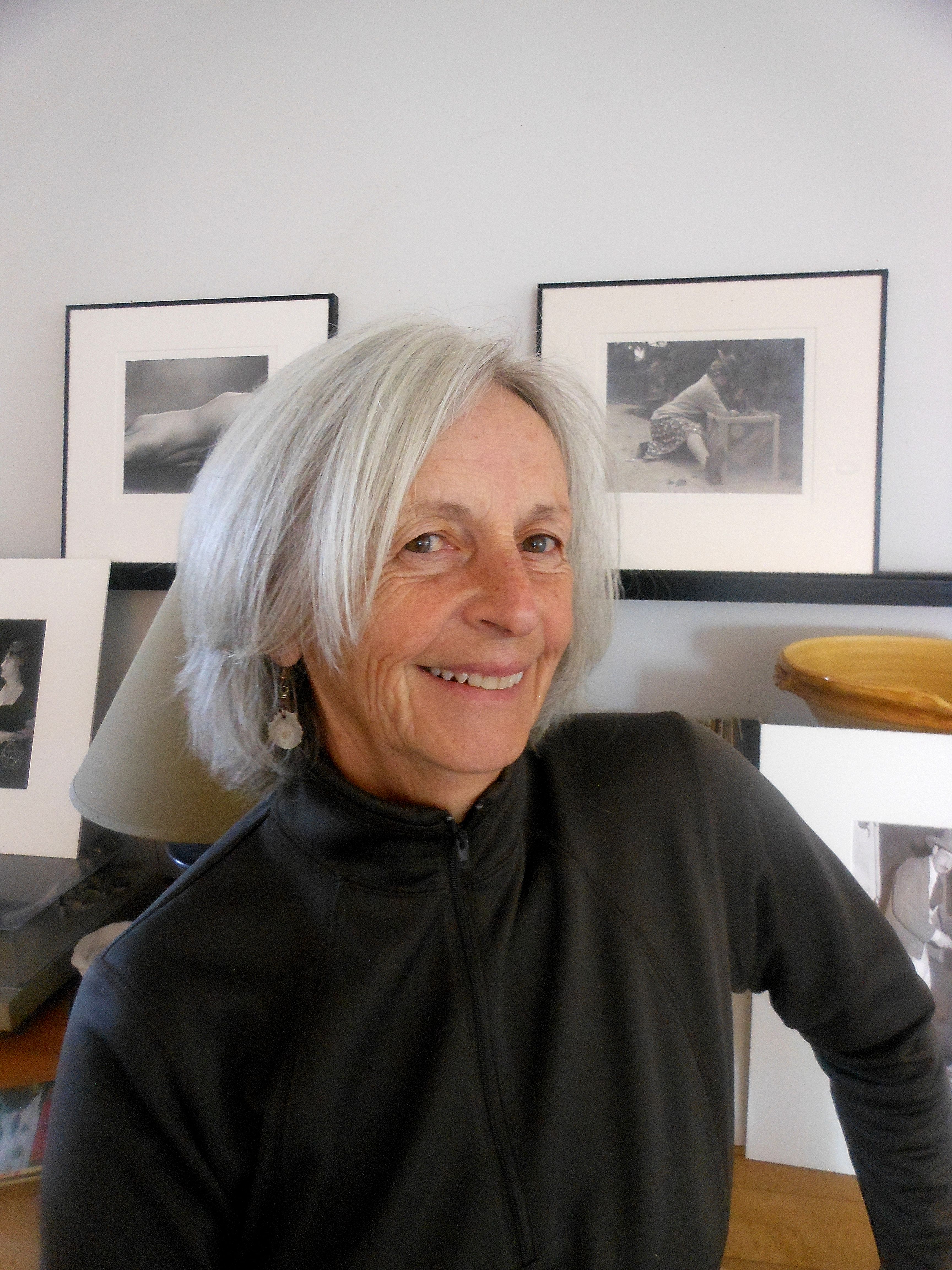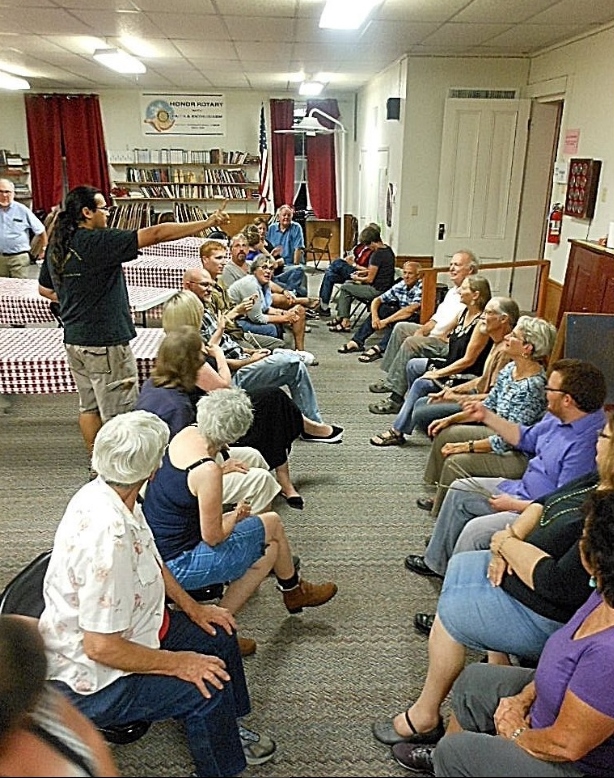Poet Barbara March with her husband, Ray A. March, founded the Modoc Forum and Surprise Valley Writers’ Conference ten years ago. She holds a BA in English Literature. Her poetry has appeared or is forthcoming in Yemassee, Mudlark, Berkeley Poetry Review, Orion, Denver Quarterly, and other journals and publications. She is a member of the Northern California Book Reviewers and serves on the poetry judging committee for the Northern California Book Awards. March administers Poetry Out Loud in rural counties of northeastern California, publishes an annual student poetry publication, and is an advocate for student poetry in remote communities. She lives in Cedarville, California.
 What makes your programs unique?
What makes your programs unique?
Each September writers come to the Surprise Valley Writers’ Conference for the clean air and open vistas, for the gold spires of poplar trees, the natural hot springs, the scent of sage on the evening air. The total population of Cedarville, the valley’s largest village, is five hundred. This is not hyperbole. There is no shopping and little Wi-Fi in this corner of northeastern California where the nearest stoplight is hours away.
The Surprise Valley Writers’ Conference strives to create an event unique in its intimacy, camaraderie, and intense focus on craft. Workshop leaders and students share hikes, dinners, and seats around the campfire. William O’Daly, preeminent translator of Pablo Neruda and frequent workshop leader says, “Bar none, the Surprise Valley Writers’ Conference can’t be beat for intimacy.”
What recent project and/or program have you been especially proud of and why?
One of the missions of the Modoc Forum, the nonprofit sponsor of the Surprise Valley Writers’ Conference, is to share the culture and geography of our corner of the West through literature, the arts, and education. This year’s conference featured field trips conducted by internationally-known geologist Eldridge Moores, who was featured in John McPhee’s seminal book Assembling California (Farrar, Straus and Giroux, 1994). Moores and his wife, Judy, led writers on field trips to sites such as the natural sand stone formation “hoo-doos,” to volcanic “dikes,” to the site of a recent mud volcano. At each location Judy Moores shared her poetry with the group.
What’s the craziest (or funniest or most moving or most memorable) thing that’s happened at an event you’ve hosted?
One of our regular conference attendees is poet Sal Martinez, a member of the Pomo tribe. Sal comes from Manchester, California, where he is currently working to restore the native Pomo name to the Garcia River. At our final dinner this year, I asked Sal if he would lead the group in the native “Grass Game,” a traditional gambling game. He went outside the church hall, found sticks and carved them into game pieces, then told everyone to move their chairs into two lines facing each other. Sal demonstrated the game and writers, urban and rural, joined in.
How has literary presenting informed your own writing and/or life?
I owe the Surprise Valley Writers’ Conference a huge debt for introducing me to poets and writers who have encouraged me in poetry. Without their support I would not be publishing poems in national journals, including a series of poems about wild horses that were published last year in Mudlark, an electronic journal of poetry and poetics. My work in poetry continues on thanks to not only the workshop leaders who are now my friends and colleagues, but to the hundreds of poets and writers who’ve attended the Surprise Valley Writers’ Conference over the past ten years.
What do you consider to be the value of literary programs for your community?
Surprise Valley is isolated from the rest of the world, which we refer to as “down below.” The Surprise Valley Writers’ Conference and Modoc Forum have introduced our community to the greater world of literature and writers with activities, such as a photo exhibit inspired by John Steinbeck’s Grapes of Wrath, storytelling sessions, and by attending the conference at a “locals only” rate. In addition, the Surprise Valley Writers’ Conference, through the Modoc Forum, administers and sponsors Poetry Out Loud in Modoc County schools each year. A student poetry publication called Early Season comes out each April and there are student poetry slams. The value of literary programs in our community came home to me last spring when a sixth-grade boy, fresh from baseball practice, took the stage at the student poetry slam at the Niles Hotel, flipped open his phone and read William Blake’s “The Tyger.”
Photos: (top) Barbara March, (bottom) Playing the Grass Game at the 2015 Surprise Valley Writers' Conference. Photo credit: Ray A. March.
Major support for Readings & Workshops in California is provided by the James Irvine Foundation and Hearst Foundations. Additional support comes from the Friends of Poets & Writers.





 What makes your programs unique?
What makes your programs unique?
